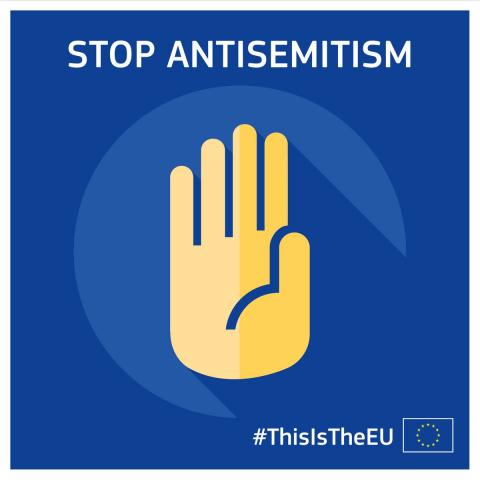EU Set to Release New Strategy to Combat Antisemitism
During January and February 2021 alone, antisemitic postings saw a 13-fold surge on German language accounts and a seven-fold increase in French channels studied. In an interview with Politico, Katharina von Schnurbein, the EU’s coordinator on combating antisemitism, said she found the recent sudden leap in antisemitism, particularly online, “shocking.”
In response, she said, the EU will soon unveil a “strategy on combating antisemitism and fostering Jewish life” that will “mainstream” the struggle against antisemitism among member nations. In particular, this will concentrate on the application of current hate speech laws to the issue of antisemitism, and member nations will adopt individual national strategies to combat anti-Jewish hate.
She cited the coronavirus pandemic as a major cause of the upsurge in antisemitism, but also pointed to Israel’s conflict with the Hamas terror group in May, which prompted a wave of attacks on Jews in both Europe and the US.
Schnurbein said, “We don’t accept … in any other constellation, that a conflict elsewhere in the world can be used to justify pressure against our citizens, or even attacks and criminal acts against our citizens here.” Regarding the pandemic, she said that antisemitism “exploded” around the issue and “I think that we saw that many of the old conspiracy myths, the old ideas, were repackaged.”
Online antisemitism, she said, “is not necessarily illegal, but can still be very harmful because it can lead to radicalization.” Schnurbein added that the rise in antisemitism has dire implications for European society, saying, “There’s sometimes little understanding for the enormity of where we are: You are almost 80 years after the Holocaust and we see symptoms in society [where] Jews feel threatened again here. This is of course something incredible.”
“When antisemitism is on the rise you know that something bigger is going on,” she said. “We address the symptoms, but there are also other issues that need addressing. When you fight antisemitism you defend democracy, you defend equality, you want a diverse society.”
Also included in the EU’s strategy is a more positive aspect, to involve educating citizens about European Jewish life and history. “I think it’s really important because it’s our history,” Schnurbein said. “In some villages, in some cities, more than half of the people were Jewish at some stage; so it has had an impact and it’s enriching to learn about it.”
Benjamin Kerstein

